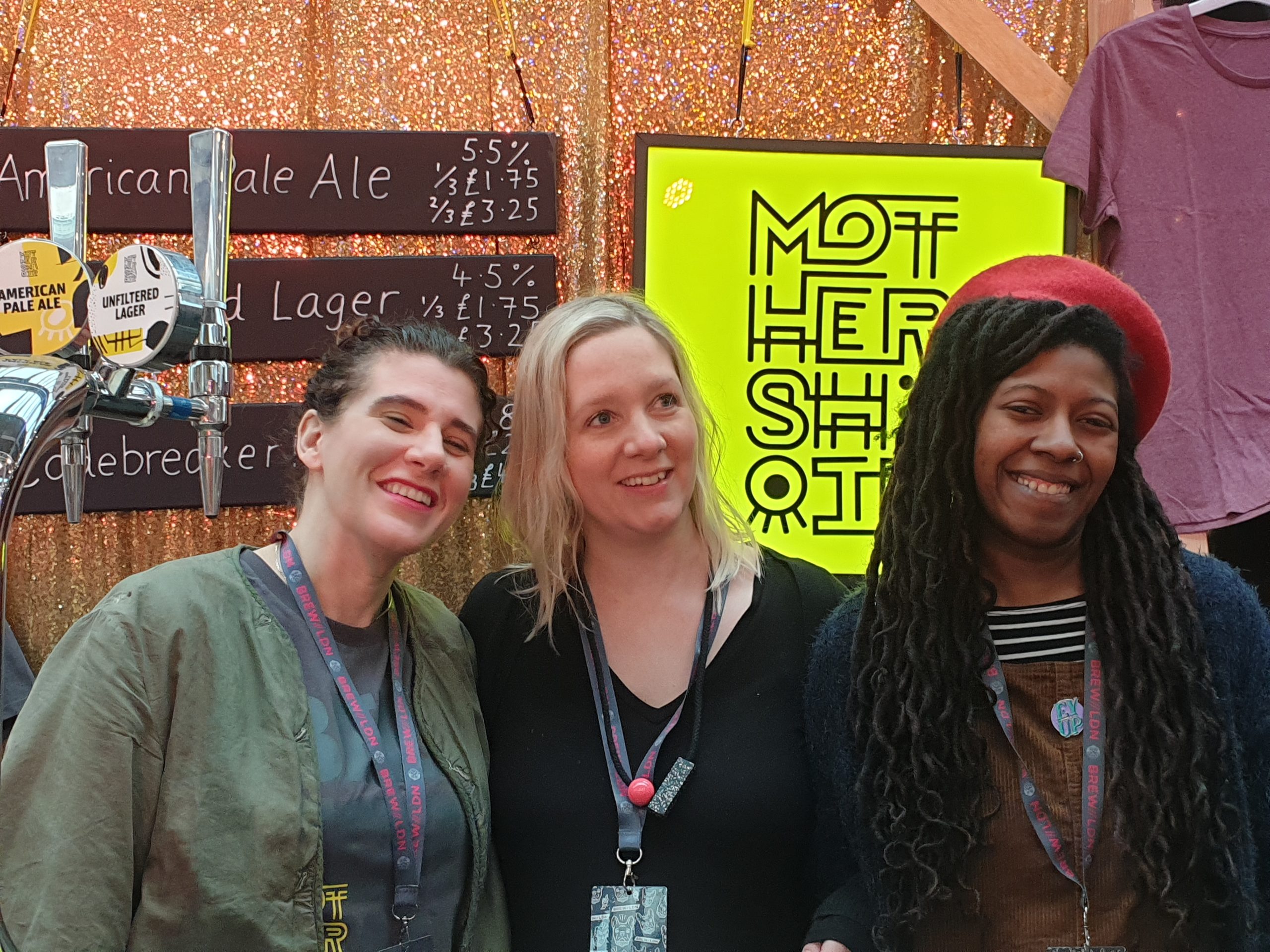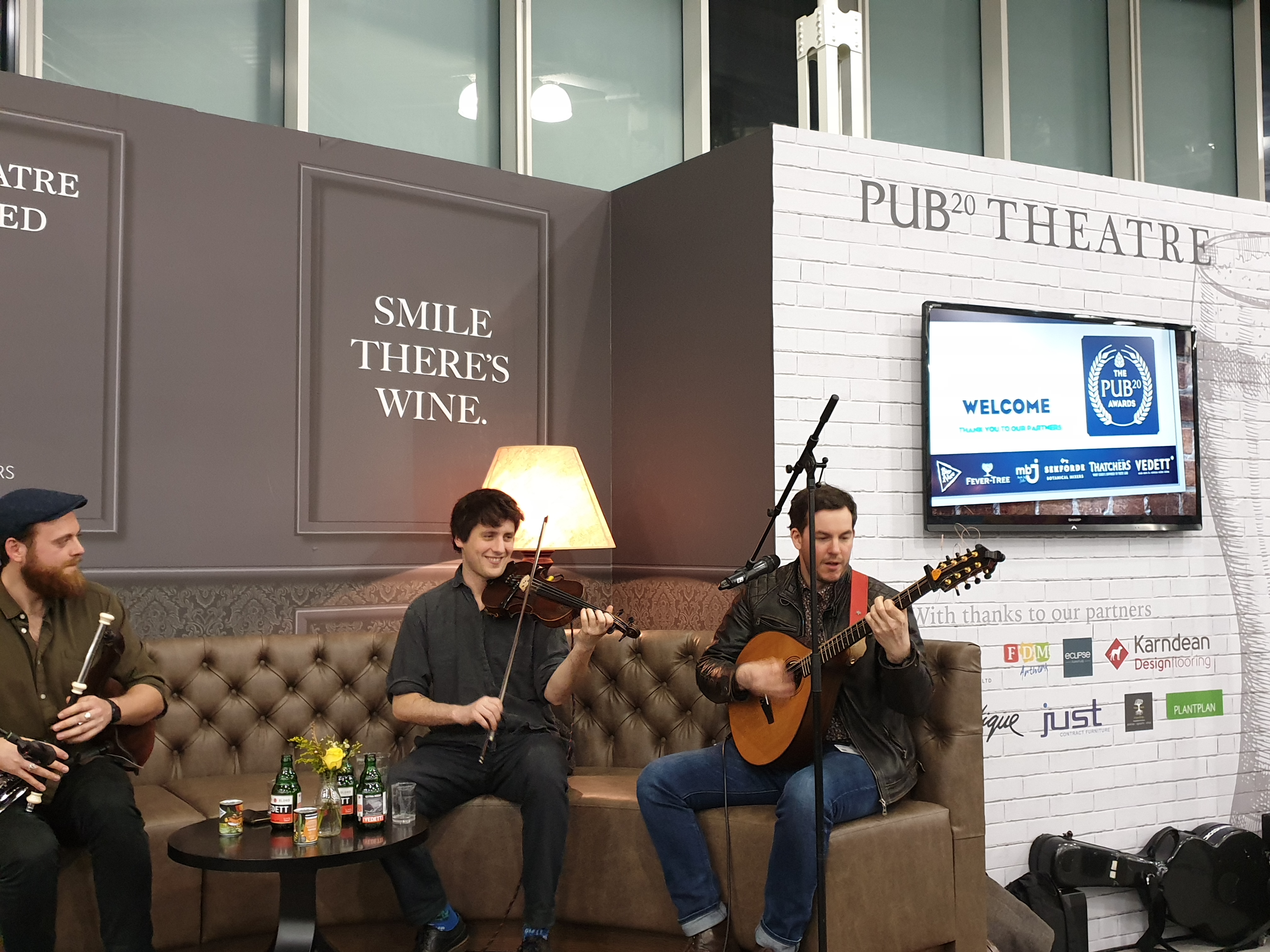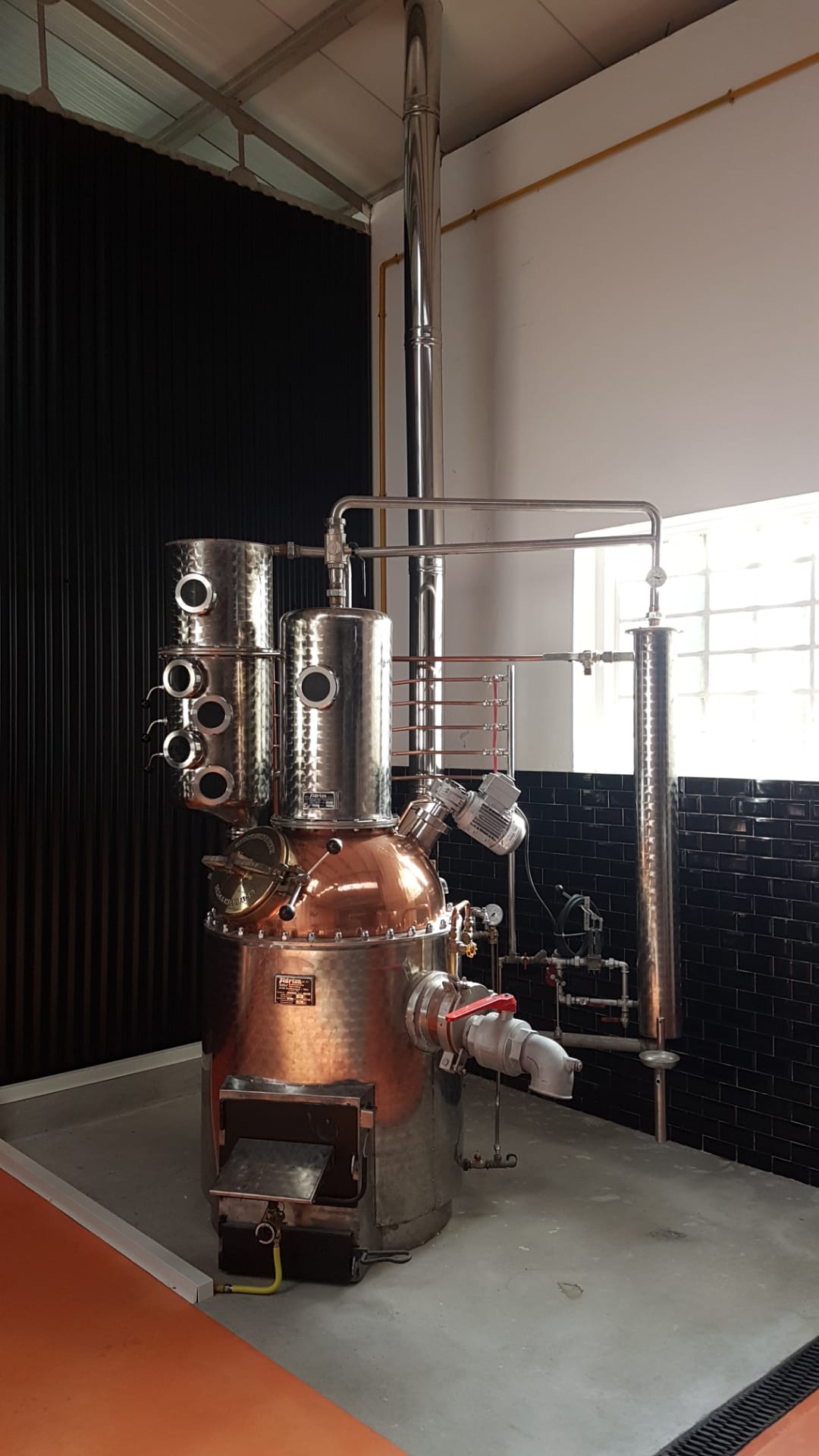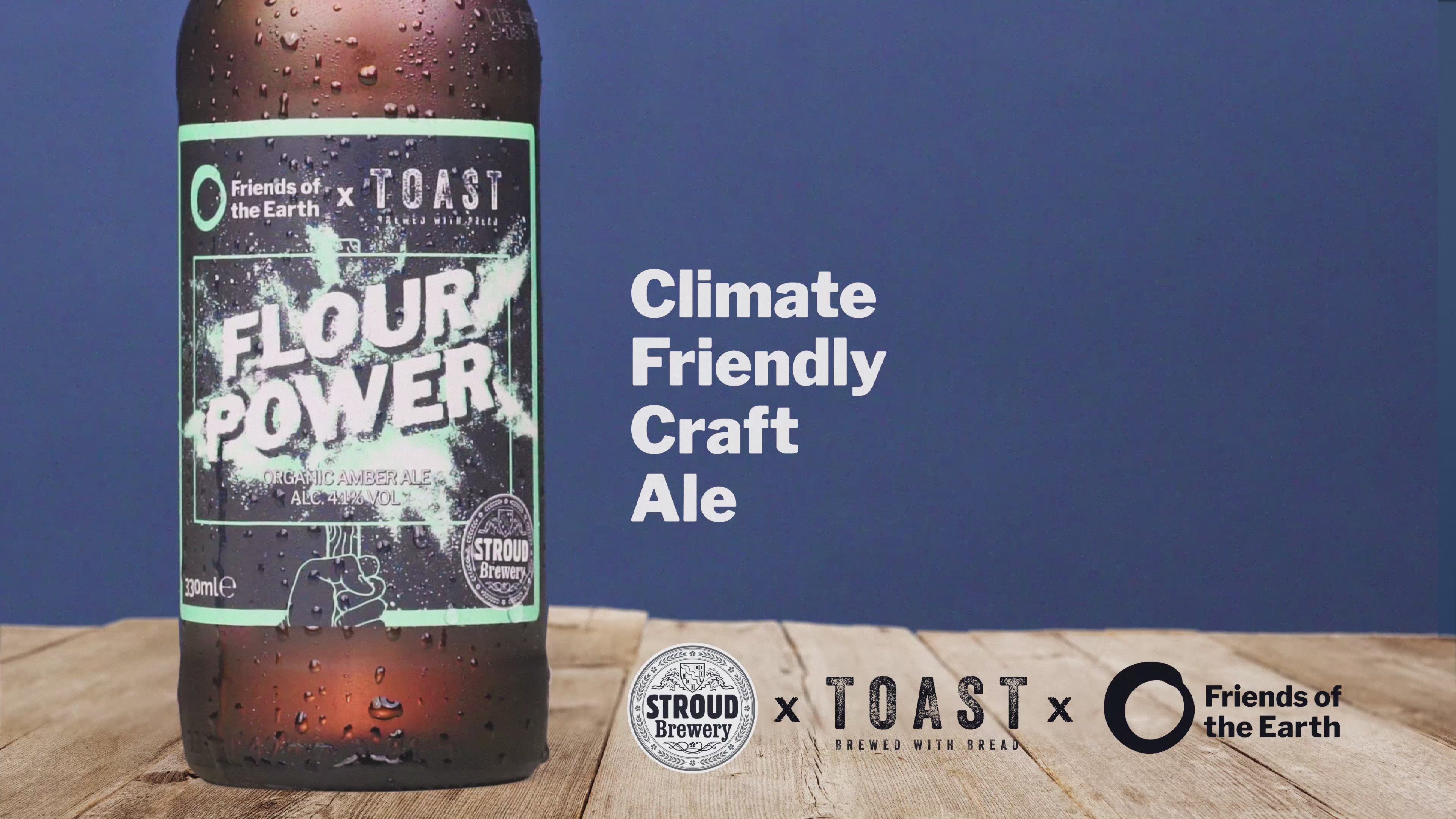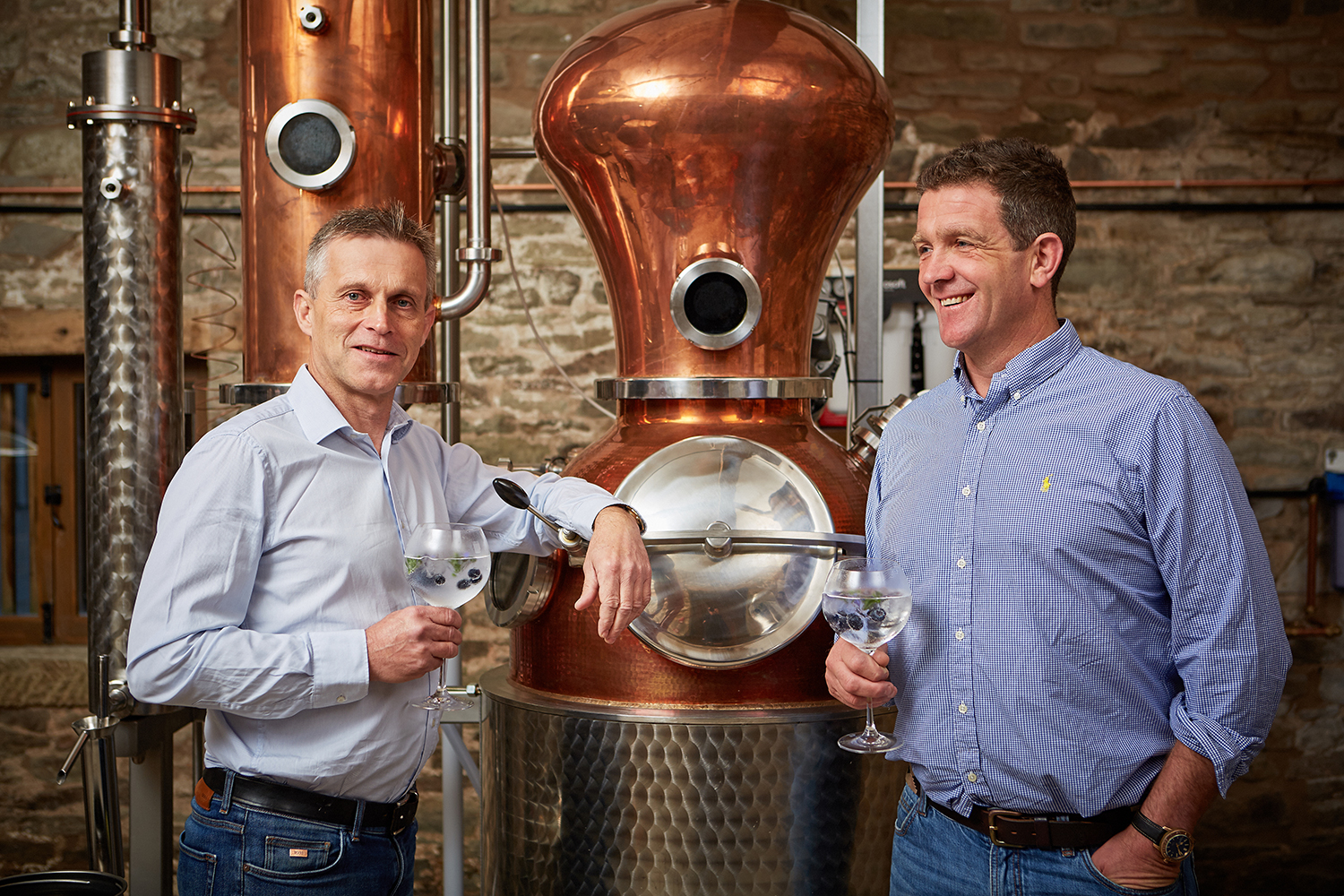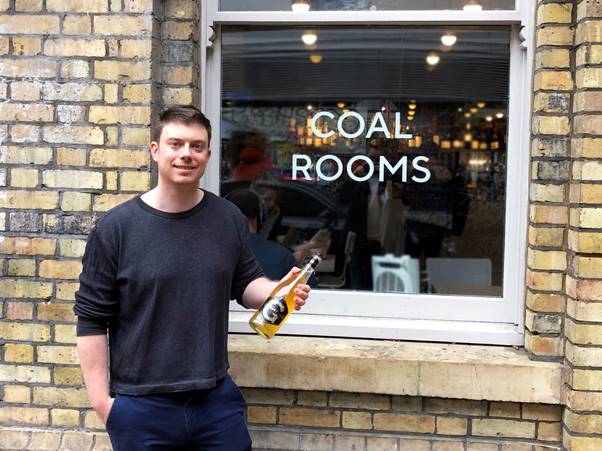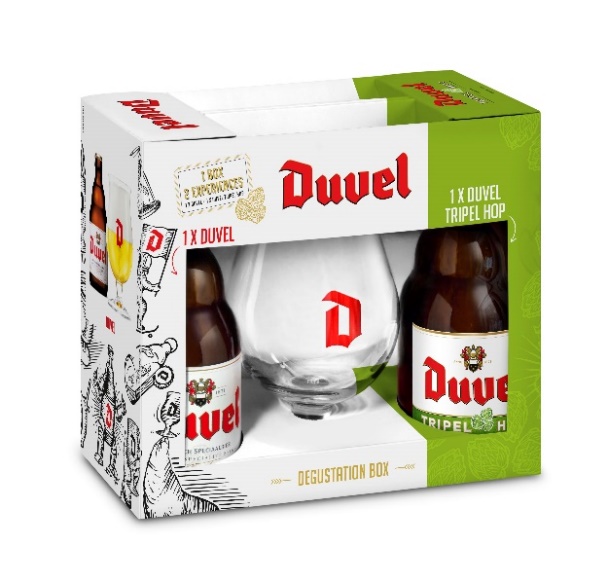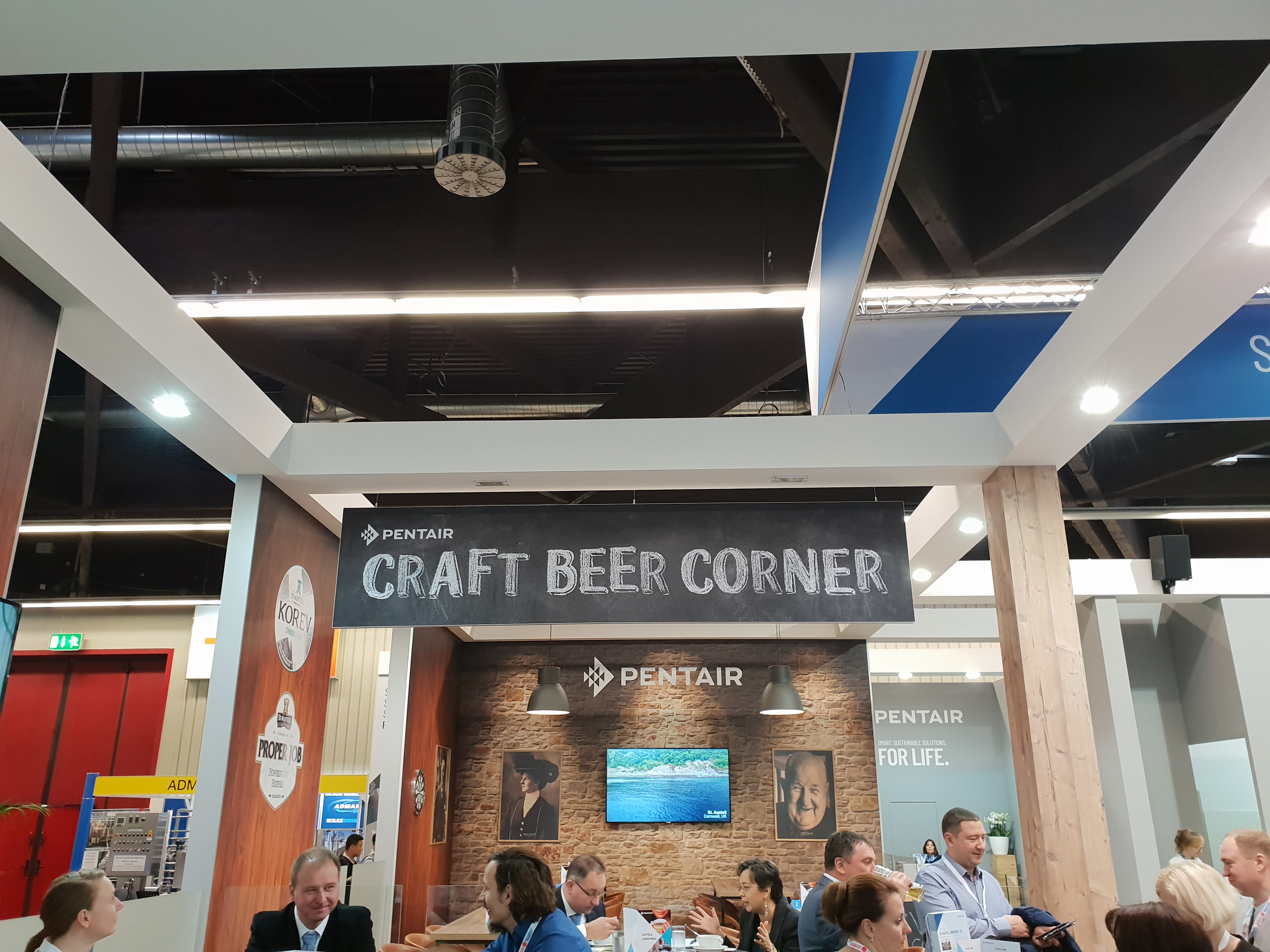ENQUIRE NOW
ENQUIRE NOW
NEW EQUIPMENT
Home | You searched for “no alcohol” | Page 3
Steering the Mothership – dedicating beer to amazing women!
Women have been involved in making alcoholic drinks for thousands of years. In medieval Britain, ‘brewsters’ took charge of beer production. They often did this within the home. Over time, as brewing became a commercial business, men began to dominate the industry. Even until relatively recently, men (including brewers) have hugely dominated the average beer festival.
Women in beer
However, more recently in beer, cider and wine making, women have become much more involved with a succession of initiatives and award-winning drinks. One company at the forefront of this success is Mothership. They are an all-female brewery that champions women in craft beer. Ryebeck spoke to Jane Frances LeBlond, founder of the company, at the inaugural Brew//LDN beer festival.
Origins of Mothership Beer
“Mothership has been going for a year now. I was a wine maker’s assistant for a couple of years, while at college and university. That’s where I fell in love with fermentation. I’ve also been a lifelong home brewer and discovered brewing beer about eight years ago. I wasn’t really a beer drinker though. However, I did enjoy the creativity that brewing beer offered with all the different styles, ingredients and challenges.”
Having worked most of her career in design, brand consultancy and advertising, she then decided to change direction. She wanted a job with more flexibility to work around her young family. “After I had my children, I became aware of the phenomenon of ‘mum bloggers’ and ‘mum entrepreneurs’. I was really interested, not so much in what they were offering or what their products were, but more in the support they received from other women. I found that solidarity really powerful. This kind of sisterhood was something I felt I really wanted to be part of. So, I guess I took that and my passion for making beer and so Mothership was born.”
Male-dominated industry
Although setting up a new business in a male-dominated industry might have been off-putting, Jane was not deterred. “I didn’t know much about the beer industry – the commercial side of it. However, I had a suspicion that it was predominantly male. The design, branding and advertising industry I came from was predominantly male. So, it was not something I was unused to or intimidated by. There was a place for women to be represented [in brewing].”
Widespread support
“We’ve had so much support from both men and women“, Jane confirms. “The men have recognised that there needs to be more women in the industry. They have really supported us in our mission, because they want it too. That’s something that’s really surprised me.”
Charity releases
In addition to seasonal releases, Mothership also brews beers from which donations on each can sold go to a women’s charity. The latest of these is Codebreaker.
Joan Clarke
Jane tells the story behind this beer. “It’s the first in our series called ‘Extraordinary Women’. We’re going to be featuring women who’ve done amazing things in history, but haven’t necessarily been recognised for them. So the first in this series we’re dedicating to Joan Clarke, because she was a little-known cryptanalyst. She worked in World War Two, cracking the Enigma code, alongside Alan Turing who everybody has heard of. Yet, no-one’s really heard of Joan Clarke, but she was just as important in cracking the code and saving thousands of lives. She and Alan Turing together invented the [decryption] machine!”
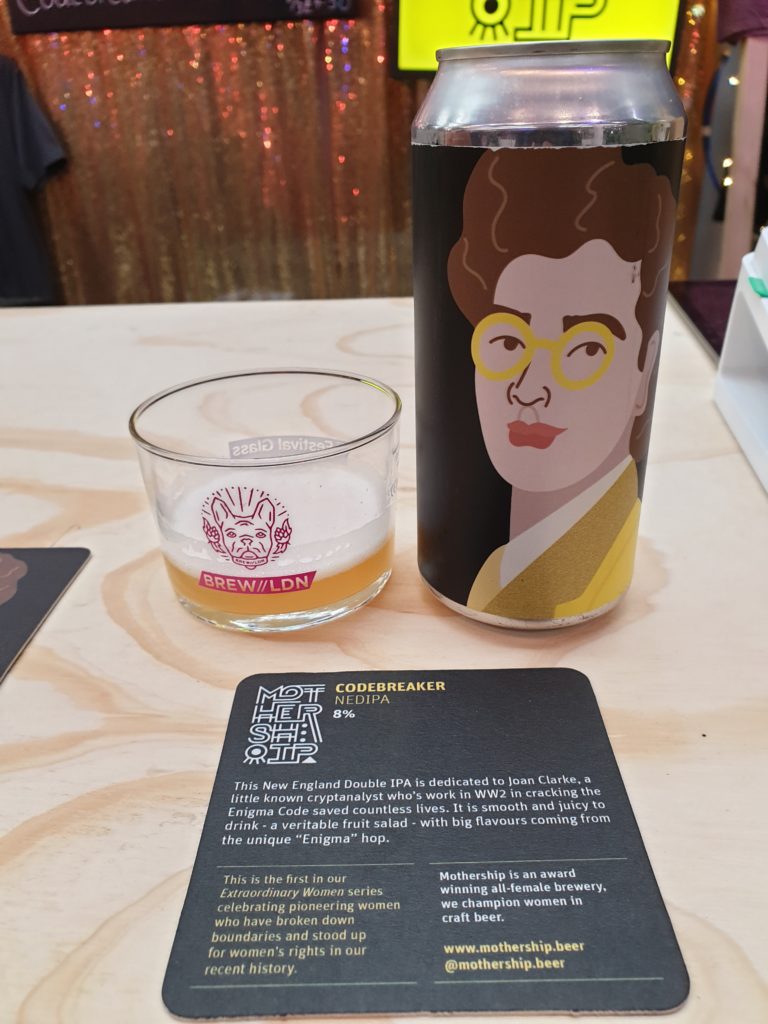
Mothership Codebreaker NEDIPA
Codebreaker NEDIPA
Codebreaker is a New England Double IPA. It’s brewed with Citra, Mosaic and Enigma hops and dry-hopped using 50% Enigma and 25% each of the other two. “It’s fairly heavily dry-hopped with Enigma“, describes Jane. “That is why we decided to dedicate it to Joan Clarke. We’re going to be brewing this beer for three months. Then we have another three to go over the course of the year. We will be releasing them quarterly, each dedicated to different women who’ve done amazing things.”
Although 8% ABV, the alcoholic strength is not so obvious. The beer feels smooth and easily drinkable, packed with juicy fruit notes. It is available in cans at selected retailers and online.
You can find other beer and brewery articles on Ryebeck’s Industry Insight pages.
This is the first of three Ryebeck reports from the inaugural Brew//LDN beer festival. The others will be posted in subsequent months.
Author: Robin Goldsmith of The Write Taste.
The Whisky Business: Thoughts from The PUB Show 2020
The PUB Show is the only dedicated show for the UK Pub Industry. Now in its sixth year, it continues to attract visitors from across the industry – publicans, suppliers, journalists and many others.
Diverse products
This year’s show took place on 4th and 5th February at Olympia London and featured a range of beers, wines, spirits and soft drinks, in addition to bar snacks and equipment. There were several non-alcoholic options too, reflecting this growing trend. However, alcohol remains the key driver in the pub sector. So, it was no surprise to see a good selection of quality craft breweries and artisan distilleries present at the event.
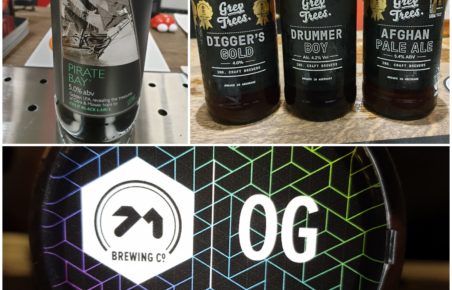
Some of the top beers from PUB20
Beer highlights
Top beer highlight for me was Dundee’s 71 Brewing Outer Galactic Imperial Dry Hopped Pilsner. This was certainly an unusual expression, strong at 7.5% ABV, crisp and rich, malty yet balanced and very drinkable! Welsh breweries were well represented too, including Cold Black Label and their deliciously quaffable Pirate Bay Golden IPA (4.5% ABV). Grey Trees Brewery, Champion Beer of Britain runners-up for Afghan Pale Ale, were also at the show. They were previously included in Ryebeck’s review of the Great British Beer Festival 2019.
The Whisky Business
Talks and workshops are always a main feature and this year was no exception. Dawn Davies MW, Head Buyer of Speciality Drinks, gave a particularly insightful talk on the Whisky Business. A new generation of whisky drinkers is emerging. So, how can pubs tailor their offerings to better serve their customers?
Whisky regions: confusing terminology
By 2022, whisky is predicted to be a £2.4 billion market in the UK, but the category remains difficult for many consumers. As Dawn noted, they look at whisky in a similar way to wine. They see the names, descriptors and references to region, but don’t necessarily understand what these mean. Also, the only ‘terroir influence’ in whisky comes from the distillery itself, not from the soil or specific area. Not every Islay whisky, for example, is peated. Therefore, structuring a whisky list by area may not be the best method. There should be a more consumer-friendly way of doing this, one which also offers a contemporary, imaginative and better quality choice of whiskies.

Dawn Davies MW talking about the Whisky Business
Flavour’s the way
People often order beer according to the flavour profile they’re after – hoppy, bitter, sour etc. So that style of descriptive language does help to engage with the end user. Although The Whisky Exchange online arranges whisky into eight ‘flavour camps’, there are four main flavour groups:-
- Sherried whiskies: rich, full-bodied styles with a heavy sherry influence, like Glenfarclas.
- Fruity: probably aged in ex-Bourbon casks like a Balvenie.
- Smoky: for example, an Islay like Laphroaig.
- Light and floral: like Dalwhinnie or Japanese whiskies.
Using these flavour camps or styles with descriptions in bar, pub or restaurant menus has practical and educational value. It becomes easier for people to choose the type of whisky they want and helps them better understand the different styles.
Trends
Current trends can also be used to encourage new whisky drinkers, especially if they regard the spirit as too strong and intense.
The trend for lighter, low sugar and lower alcohol drinks is growing. Many people are now concerned with their alcohol intake. Highball cocktails are becoming more popular, but these don’t just have to be a gin and tonic. A whisky highball is a great alternative. It’s a long drink that’s light, fresh and easy-drinking! Rye whiskey and ginger is another good option, So, talking to consumers about flavour and flavour combinations like that can bring them in to the category.
For a current overview of whisky trends, have a look at this article on Ryebeck’s Industry Insight pages.
Points of difference
Engaging customers with a more creative offering is also important. There are many ways of doing this, such as:-
- Rather than a ‘Gin and Tonic’ list, try having a ‘Highball’ list with four different whiskies.
- Instead of choosing a standard blended whisky that every other bar, pub or restaurant sells, opt for a more boutique brand. Blended whiskies are particularly good for new consumers, because of the sweetness and roundness from the grain.
- Look outside Scotland and Ireland for a more interesting range of grain or blended whiskies. There are many US whiskies that aren’t Bourbons, so perhaps choose one from Texas or Vermont.
- Go international and stock whiskies from Taiwan, India, Japan etc.
Whisky has great potential
Dawn sees the spirits business as showing huge potential, with whisky being a strong category. “Consumers want knowledge. They want interest and they’re hugely engaged right now. We’re in the best time I’ve ever seen in the last twenty years. Whisky is super-exciting and interesting. So how do we move the consumer into whisky? How do we talk to them about it? We can do that through flavour and the different styles. This is super important when constructing a list. Have a couple of classics, but don’t be afraid to be a bit quirky! Have fun with your whisky list and your customers will have fun with you.”
Sound advice from a leading expert in the alcohol industry.
Author: Robin Goldsmith of The Write Taste.
New distillery finds a pot of gold at the bottom of the rainbow!
Scoundrels Distilling Co. is a new craft distillery in Porto, Portugal. Opposite a park, near a Metro station and with easy access to the city centre, they’re in a great location to attract customers once open. They will soon start producing their first gins, rums and cocktail bitters, as well as having a gin school. Co-founder and director, Travis Cunningham, has over 20 years’ work experience across multiple industries including agriculture, tourism, management consultancy, medical insurance and medical services. An entrepreneur at heart, he has managed businesses around the world. However, a background of home brewing and some time spent in the wine industry in Australia meant that the drinks industry was never far from his mind.
Idea develops
“The idea began in Cape Town in 2015“, says Travis. “We went there with a group of ex-pat mates that we’d made in Mongolia. There were about twenty of us, so we rented a house. My mate said ‘let’s drink a Dark and Stormy’, but there wasn’t a local rum!”
Originally, he wanted to set up a brewery somewhere with a friend as they had previously made some beer together. Concerns over beer’s quality when travelling long distances then made him decide to focus on spirits, in particular rum. Portugal became the country of choice for this new venture.
Choosing a location for the distillery
Porto has previously been voted ‘European destination of the year’ and has been building on that success. Spirits production is a growing sector, although it’s still relatively small. “Everyone’s making gin“, says Travis. “There’s a big brandy industry here with spirit being used in port fortification, but [the city’s] not really gone through a craft or small distillery phase like elsewhere. We moved to Porto as we can access port barrels at source to age our rum in. There’s nothing else here like what we’re looking to do.”
A few firsts
Travis is excited by the prospect of bringing something new to the Campanhã district of Porto, which he says became “the forgotten quarter of the city”. There is now significant government investment in developing the area and Travis wants to be at the forefront of this new opportunity. “We’re going to hit quite a few firsts – the first urban distillery in Porto for probably 50 years, the first gin school in Portugal and the first dedicated new tourism business in Porto’s Sao Roque/Corujeira area.”
Sourcing locally
Once bonded, Travis will begin buying in neutral spirit, made from wheat and rice, from a distillery in central Portugal. He’ll then be able to decide on the best quality water with the right pH for his products. He will also source botanicals as locally as possible to use in the different spirits. “We’re trying to source as much as we can from within Portugal. There are limitations, but we found some people who grow herbs and botanicals here in Porto. We’re also looking to use existing fruit – oranges and lemons – that have fallen on the ground or sitting on trees around the city and going to waste. Our view is that if we make a gin, cocktail bitter or spiced rum, we’re using similar botanicals and spices all the way through.”
Brand development

The company logo is based on the Portuguese water dog, Travis being a proud owner of one!
The Scoundrels Distilling brand was registered in April 2019. The name is based on George Bernard Shaw’s quote that ‘Every man over forty is a scoundrel.’ Because Travis is not operating all products under a single Scoundrels Distilling brand, he’s registered separate brand names in Portugal and the EU for the different products he’ll be making. These will be Invicta Gin, Dragon Bitters, the Scoundrels brand and Invicta Gin School. This gives him added versatility in his business model with potential for third party investment in different parts of the business.
“A friend explained to me that Invicta is the second name for Porto”, explains Travis. “It remained unconquered twice in its history when under attack. The word Invicta is actually in the city’s coat of arms and does mean ‘unconquered’. So, even with all the challenges that we’ve had, we’re also unconquered in what we’re trying to achieve!”
Dragon Bitters is so called, because the location of the distillery is opposite the Estádio do Dragão, the FC Porto stadium and their mascot is the dragon.
Focus on quality
Travis’ vision is to compete with high-quality craft brands, selling to bars and restaurants that want quality products. “We’re working with mixologists that want a quality, locally-made product. We’ll be getting them in because we have a huge amount of cocktail bars close to us. It’s a growing sector and maybe we can make a house gin for them, the way they want it.”
“There are a lot of gins here. Everybody’s going for that slightly different thing. I just want to make a really good dry gin, a really good citrus gin and I want to barrel-age some gin because we’re in Porto. I don’t want to do anything that looks like a gimmick. Our dry gin will be based on a London Dry, but we’re going to call it International Dry because of our international experience. The Portuguese Citrus Gin is based on the fact that we live in one of the most prolific citrus-growing areas of the world.”
Travis is also keen to acknowledge that although he plans to make rum, he will not rush it on to the market if the quality isn’t right. “We’re not going to put a white rum out there if we don’t think it makes the grade.”
Contacting Ryebeck for the still
Travis went to the USA with his business partner in 2016 for a distilling course at Moonshine University. This gave him a much more in-depth understanding of the industry. So, he looked into sourcing a Portuguese alembic still. However, limitations such as the lack of a column and the difficulties in attaching a vapour basket left him unsuccessful. Then, towards the end of 2018, he discovered Ryebeck and was immediately impressed by their knowledge and attitude.
“I really wanted a second hand still that we could repurpose“, he recalls. “Finding Ryebeck online, I reached out to Tim and asked him a few questions. I just found him the most helpful person I’d dealt with. In all the research I’ve done, he’s the guy who understands customer service. If somebody has a question, then he responds. I sent many emails to people and heard nothing back from them, so I just thought why bother persevering if they’re not interested now. I asked Tim if he could recommend anyone he’d worked with on a project before that I could talk to. So, he put me in contact with Jamie Jarrold of Jarrolds Gin. I had a good chat with him and he’s been a really big help to me as well.”
Industry co-operation
Thanks to Ryebeck’s introduction, Travis was able to discuss his plans with Jamie and gain the benefit of his experience. “He’s been willing to give me a huge amount of info. When I did the course in Kentucky, I was told that you’d struggle to find a more collegiate industry than the craft distilling industry. I took it with a pinch of salt but I think it’s actually true. People are more than happy to help each other out.”
Deciding on the right still for the new distillery
Following detailed discussions, Tim sourced a 150L second-hand still and explained how it could be customised. He then arranged a visit to the factory in Germany so that Travis and his business partner could see the still and clarify any outstanding issues. They then paid a deposit for the still in January 2019 and it was commissioned by Ryebeck in November 2019.
Throughout this time, Ryebeck worked closely with Travis and the manufacturer to source and modify a still that suited their customer’s requirements. Because of its prior operation only when fruit was in season, it’s had relatively low usage. “It’s 25 years old, but looks brand new“, describes Travis. “Originally wood-fired, the still has now been converted to gas. It’s had an agitator and a column bypass installed that allow us to do a one-shot gin through the vapour basket straight out of the top end of the condenser.”
“By starting with a 150L still, we have space to grow. We could buy another still, keep that [original] one and use it for bespoke rums later. We chose it because we can do the things that we need to, like single-shot gins, or we can use it to make rum with a double or triple distillation. It allows us to do small batches. Until we get everything right, it’s pointless having a giant still.”
A pot of gold at the bottom of the rainbow!
One incident in particular from his visit to the factory sticks in Travis’ memory. “As we were driving down, we got within a kilometre of the factory. It had been raining and the sky cleared. There was a rainbow and we thought wouldn’t it be funny if at the bottom of the rainbow was the factory – and it was! It was quite a surreal experience – a sign from the universe that we’re on the right path!”
Facing challenges
Travis has extensive expertise in start-up projects, but this latest venture is not short of challenges. “We’ve had a huge amount of delays. We took a lease on the property in November 2018. Here we are in 2020 and we’re still not open. We waited six months for a gas connection, then we hit summer, so lost all the time with contractors who went to do other work.”
Gas connection for the distillery
Among the biggest challenges were the logistical difficulties of having a gas connection installed and then a chimney fitted to allow the heat from the still to escape. “We had signed the paperwork for a gas connection at the beginning of January 2019 and I was told that it would be a seven-week wait. So, I asked Ryebeck to send us the still in May. We couldn’t wait any longer and we had contractors lined up to do construction. Then our gas didn’t get connected until the end of June. It was almost six months to put together the gas connection!”
Unforeseen delays
Unforeseen delays didn’t end there, as Travis remembers only too well. “We couldn’t get the gas connection signed off as quickly as we thought, because we had to get a chimney made. We just thought we could buy one from our local hardware store, but they don’t have the same standards here as in the UK, Germany, Sweden etc. It’s a 160ml diameter pipe and here they have 120, 150, 180, 200. So we had to get it manufactured. Then it rained for five solid weeks, so we couldn’t get on to the roof to cut a hole to install the chimney. So we lost another five weeks! We didn’t actually finalise the gas connection officially until November, because we had to get it signed off by the inspector first. So it took almost a year!”
“I don’t think most people would believe the challenges that come with trying to do something like this. So much of this is out of your control. In my mind, I was going to be open in June and we’re almost eight months late and we’re still not open. The hardest part is getting out of bed and being optimistic! There’s a huge amount of positives, but all in all, it’s been such a challenging period.”
Vision
Although living in a new country, starting a new business in a different sector and faced with language barriers, Travis remains undaunted. “I’m working on the basis of 50% ignorance and 50% energy. I’ve built what is going to be an amazing space. My vision in terms of seeing a gap in the market is very clear to me. I still feel as positive about it now as when I started, even if we’re not open after so many months. I still know this thing’s going to work … otherwise I wouldn’t do it.”
Business realism
Despite the many challenges, Travis is clearly enthusiastic about creating a new company in the drinks sector. His business mantra is firmly based on an entrepreneurial mindset: “If it’s your own money, would you spend it?“. This has made him focus his attention on avoiding pitfalls that lead to potential business failure.
“I love the craft aspect of it“, he adds. “I love every part of this industry and I think it’s one of the most amazing industries I’ve been involved with in my life. At the end of the day though, I’m a realist. I’ve read many articles and one of the articles was on why distilleries fail. I was more interested in this than success stories. A guy from an American company said: ‘Ultimately we’re a marketing company that happens to make booze. If we always focus on trying to make the best product all the time and did nothing on selling it or marketing it, we wouldn’t even have a business. That’s the reason we’re still here.’ So I thought that was really interesting and that’s a good mandate to live by.”
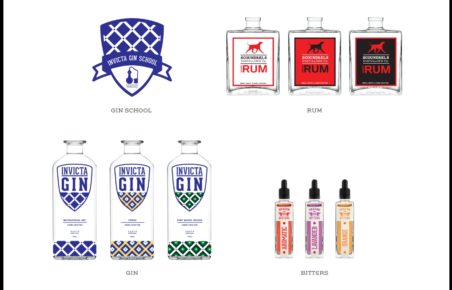
Scoundrels Distilling Co., Invicta Gin & Dragon Bitters Brands
Gin school and distillery
Once the business is fully licensed and bonded, Travis can take delivery of the neutral spirit. His plan is to start by producing gin and launching the gin school. This will create cashflow and help cover outgoings as he begins making rum as well. “We need the gin packaged and presentable with merchandising ready for the gin school“, he explains.
Rather than operating a bar and selling gin direct to consumers that way, his main focus is on export markets. Additionally, he wants to attract business to the gin school from tourists, corporate customers and others. Visitors would spend around 3½ hours learning about gin, it’s history and the production process, before making a bottle of gin which they take away. “We’re not running a bar. We’re running a distillery. The idea is that we’re pushing responsible serving of alcohol from here. We just want to be a distillery and a gin school.”
Customers will also be able to buy tickets for a tour of the distillery to include a tasting of gins and bitters. Travis plans to use his space for events as well, including art exhibitions, photo shoots, private functions and distillery dinners with visiting chefs. “We don’t want to be a circus. We want to be a professional business and get a really good reputation for being good hosts – that we run a great school, our merchandising is of high quality and the products we make are fantastic.
The Ryebeck experience
These are bold plans which have already faced plenty of challenges, but thanks to Ryebeck’s help are soon to become a reality. Travis is already thinking about future needs. If all goes to plan, he hopes to be able to ramp up production within the next six months or so.
Likely to require an additional larger still, Ryebeck remains his first-choice partner. “We would not necessarily buy a new still. I think there’s every chance that we would buy a second-hand one again. That’s a good reason to work with Ryebeck, because they have a network that we don’t. I realised once we started working with them that there was no way we would have found that still on our own. So, I have no doubt we’ll be keep working with them. I like Tim’s professionalism. I’ve met so many people over the years that say one thing and do another. He’s not like that.”
“It’s been a really positive experience. The challenge that we would have had by going alone was made a lot easier by working with Ryebeck. They’ve been really quick with responding to questions. I just think they’re a professional company. I haven’t met anyone else in the industry that do what they do. It’s pretty obvious to me that they’re very good. I have no issue recommending them to anyone else.”
If you’re interested in purchasing distillation equipment, then Ryebeck can help. You can call the team on +44 (0) 800 689 3216 or contact them via their online form.
Author: Robin Goldsmith of The Write Taste.
Great British Beer Festival 2019
One of the UK’s biggest celebrations of beer took place earlier this month. CAMRA’s Great British Beer Festival (GBBF) offered thirsty visitors a choice of over 1000 beers from more than 250 breweries. While many were from the UK, there were also beers from around the world, including US cask ales. Following successful offerings last year, a dedicated Wine & Gin bar featured a daily-changing list of brewery-produced guest gins.
Key Kegs at the Beer Festival
CAMRA, The Campaign for Real Ale, has been taking steps to modernise its image and consequently make itself more relevant to modern beer drinkers. So, for the first time in its history, the GBBF featured a CAMRA-run live key keg bar with beers from nearly 30 UK breweries. Additionally, there were a further four brewery bars using key kegs (The Wild Beer Co., Magic Rock Brewing, Tiny Rebel and Siren Craft Brew). All these beers were unpasteurised and served without addition of extraneous gases. Therefore, they constitute ‘real ale’, according to the campaign group’s definition. Also, the plastic key kegs used were recyclable with the recycling process beginning on-site at the festival.
The Value of Beer
Mike Wood MP, Chair of the All-Party Parliamentary Beer Group, spoke about the beer industry’s importance for the UK economy. “British beer and pubs are a force for economic good“, he stressed. “They contribute nearly £13bn to the Exchequer, employ nearly one million people and beer is one of our largest growing exports.”
Beer Education
In another pragmatic move, a new Discovery Zone offered visitors the chance to meet brewers. Here they could learn more about the brewing process and dispense methods. Alex Metcalfe, Learn & Discover Manager at CAMRA said: “The idea is to help anyone become a beer connoisseur, to make the information accessible and available to all. Beer can be seen as an exclusive or ‘geeky’ hobby, which can be off-putting when a novice is trying to decide what to order at the bar. As a consumer organisation, we want to provide all the resources available to help more people feel informed and confident about their favourite drink.”
Inclusivity
CAMRA banned beers with discriminatory names or artwork at the GBBF, following on from its policy launched last year. A YouGov survey found 68% of female drinkers who expressed an opinion would be unlikely to buy a beer they were planning to buy if they saw an advert for it which they considered sexist. Abigail Newton, CAMRA National Director said: “We need to do more to encourage female beer drinkers, which are currently only 17% of the population, despite the fact that they make up more than 50% of the potential market. Beer is not a man’s drinks or a woman’s drink. It’s a drink for everyone. There is a huge amount of work that needs to be done to overcome outdated stereotypes.”
Diversity
“GBBF has always been a festival that offers visitors an incredible amount of choice“, announced Catherine Tonry, CAMRA’s Festivals Director. “We’re proud of our diverse range of real ale, cider and perry. This year is no exception. In fact, for 2019, diversity has defined our festival.” Therefore, Stonewall, whose motto is ‘acceptance without exception’, was the chosen charity for 2019.
Champion Beer of Britain Competition
One of the main events at the festival is the announcement of the prestigious Champion Beer of Britain (CBOB) medallists. Surrey Hills Brewery won the 2019 Supreme Champion Trophy for Shere Drop (4.2% ABV), winner of the individual Best Bitter Category. Grey Trees took second place overall for Afghan Pale (5.4% ABV), winner of the Strong Bitter Category. Oakham Ales scooped the bronze medal for Citra (4.2% ABV), also awarded best Golden Ale.
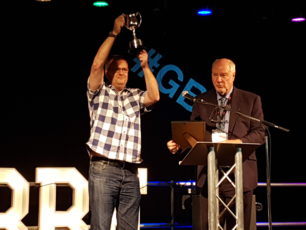
Ross Hunter, owner of Surrey Hills Brewery, collecting his Supreme Champion Beer of Britain Trophy
Supreme Champion Winners
Surrey Hills is based on the Denbies Wine Estate, having moved there in 2011. Owner Ross Hunter was in jubilant mood on hearing the result, but completely taken aback by this success. “We’re in a bit of shock“, he commented. “We brew consistently high quality beers but you never think you’re going to be top of the tree. It’s a complete surprise! The thing I’m most proud of is that we’ve reached the finals of the CBOB competition most years that we’ve been going. This means we’re doing something right!” Shere Drop is a more traditional style of beer with plenty of malty flavour complementing the bitter hop character. “This is a more balanced beer and one of our least hoppy ones, which is slightly surprising in the modern era. It’s not boring – it has good balance between the hops and the malt.”

Ray Davies of Grey Trees Brewery
Tracy Davies, Brewery Manager and Co-Director of Grey Trees, comments on the Welsh brewery’s Supreme Champion runners-up result. “We’re a small brewery, six years old. We just turned up and were congratulated with the news that we’ve won Silver Overall Champion Beer of Britain. This is completely overwhelming! We’ve won some regional awards that we’re really proud of. To win this is superb, which makes it all worthwhile!
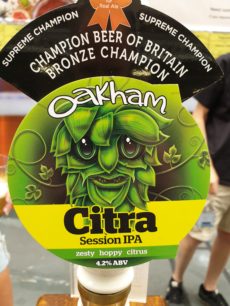
Oakham Citra
Oakham Citra is an iconic British beer. It’s known and loved by many beer drinkers for its citrus and tropical hop flavours. Winner of the Silver Trophy in 2014, this was the first UK beer brewed with 100% Citra hops.
Wild Beer at the Great British Beer Festival
Seven years ago, Brett Ellis and Andrew Cooper founded The Wild Beer Co., one of the UK’s most innovative craft breweries. Heavily inspired by sour beer production in the US and Belgium, the company focuses on barrel-aged sours and wild beers. Ryebeck spoke with Brett at this year’s festival, where the company had its own dedicated bar.
“We could see the drinking public were ready to be taken on a journey that they wanted to be involved in. So we set up a brewery to explore that and have a positive impact on the evolution of beer drinking in this country. On this evolution, we were really focussed on flavour and beer as a way to transport it. So we looked at different fruits, yeasts and bacteria that are used around the world to make different flavours in beer.”
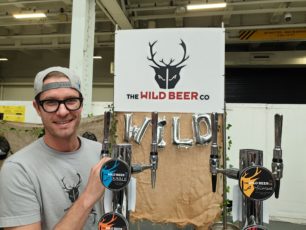
Brett Ellis from The Wild Beer Co.
“Being a wild brewery, we really try to be inclusive and not exclusive. Everybody in the world has a sense of what it means to be wild – whether that means climbing Mount Everest, walking up Snowdonia or Glastonbury Tor. Wild is very personal, so we make beers that can take you one step into the wild. This could be a pale ale that doesn’t taste like a traditional pale ale, or a sour beer brewed with chocolate that takes three years to make.”
Beer for restaurants
Brett, a former catering chef for a winery, is also committed to providing restaurants with better quality beers available all year round. “We challenge restaurants and alcohol buyers. They put so much focus on other products [like wines and spirits] and the experience in the restaurant, but just neglect this whole opportunity of flavouring experience in beer. You can’t get into a Michelin-starred or high-end restaurant by just having a speciality beer you can only buy once a year. If we can provide high-end beers all the time, then we’re opening that door to have a better beer in the restaurant. We are now in 15-18 Michelin-starred restaurants around the UK, but mostly in London.”
Cask vs keg beer
Cask beer represents a small segment of the company’s beer production with draught keg around 45% of their total output. “I think the demographic of beer appreciation is becoming more diverse in age and gender“, explains Brett. “This is going to increase more in keg, can and bottle. In cask, there are limitations on what is going to be successful for the publican to sell. This is not going against any tradition. There’s a whole world of flavour opportunity and experience if we can enjoy beer in a wildly different way. Our slogan is ‘drink wildly different’. Therefore, don’t be focused on a single type of dispense method. Be focused on the experience, the flavour and the quality that you end up getting in your mouth.”
Collaborations
Collaborations in the drinks industry are driving many new products, as Brett describes further. “They’re great for us as breweries to work together – to evolve, to push our industry and the beer market. You expect something different, new and interesting from a collaboration.”
Wild Beer has also collaborated with Psychomp Microdistillery to create Sleeping Lemons Gin based on their beer of the same name. Here’s an exclusive Ryebeck interview with the founders of the distillery.
Collaborations are also core to Magic Rock Brewing‘s business. “We’ve always done that“, they told Ryebeck at their dedicated festival bar. “Collaborations tap into new audiences which might not have been there before. Therefore, the more you collaborate, the more your brand gets out there and the more people get to try your beers.”
The way forward
Brett Ellis has a clear view on CAMRA’s relevance and the new direction the organisation is taking by including keg beers at its festivals. “CAMRA has rules and standards they adhere to at events. The people here are incredibly passionate about what they do and want to uphold standards. They’re educating and, as a result, have a lot to say in a good way. So softening their stance on beer dispense is great. They’ve done an amazing job at making sure that traditional real ale isn’t going to go away and it isn’t going to. However, it’s not the be all and end all. CAMRA has helped educate and bring a whole country of drinkers to expect better beer. So now let’s take that and apply it with modern technology and modern equipment, not historical equipment back in the day when CAMRA was established.”
Brett’s refreshing approach sums up a hugely enjoyable festival that mixed ‘old school’ and ‘modern’ beers in a new way. There’s clearly a place for dedicated craft beer festivals and more traditional CAMRA ones. However, what unites them is a love of good beer and that’s something we can all raise a glass to. Cheers!
CAMRA’s ‘Summer of Pub’ campaign supports local pubs which lie at the heart of the community. These pubs play an important role, because they help to tackle loneliness and isolation. You can find details on the campaign here.
Author: Robin Goldsmith of The Write Taste
Using your loaf for the environment!
Toast Ale sustainably brews award-winning beer. They use fresh surplus bread from bakeries and the unused heel end of loaves from the sandwich industry. They donate profits on core beers to the charity Feedback which campaigns for a more sustainable food system. The business was created in late 2015 by Tristram Stuart, an expert on the social and environmental impacts of food production and founder of Feedback. So far, the company has given nearly £25,000 to charity.
Flour Power
On 2nd May, a launch party was held at Sustainable Bankside to demonstrate and celebrate the potential for sustainable brewing. Friends of the Earth, Stroud Brewery and Toast Ale joined forces on a new beer that showcases how modern brewing can do its bit to provide solutions for a greener future. Flour Power is a modern, heavily hopped amber ale, made with Citra & Azacca hops that give an intense citrusy aroma. It’s well-balanced with a fruity finish.
Using waste bread
Flour Power is brewed in Stroud’s organic brewery and uses unsold organic bread from Hobbs House Bakery which would otherwise have gone to waste. Five percent of the proceeds from the beer’s sales are donated to Friends of the Earth’s climate campaign, which will then be distributed to the charity’s ‘most urgent needs’. For other one-off collaboration beers, the company generally partners with local bakers, brewers and charities, in order to raise engagement about food waste at a more local level.
Greg Pilley, MD of Stroud Brewery, talking on the collaboration with Toast Ale.
Collaborations
With their core beers in the UK, Toast Ale contract brews with Wold Top in Yorkshire, who sends spent grain at the end of the process to a local farm. Toast also works with other breweries in the US, Brazil, Iceland, Ireland and South Africa, using locally sourced surplus bread to benefit local charities. They’ve even published a bread beer recipe for home brewers, which has been accessed online around 50,000 times!
Environmental impact of food production and waste
Food production has a huge impact on the environment. Feedback’s research shows that it’s responsible for 80% of deforestation, 70% of fresh water use and 30% greenhouse gases. It’s also the biggest contributor to biodiversity loss and soil erosion. However, one-third of all food produced is wasted. This equates to 1.3 billion tonnes globally, according to the 2013 findings of the Food and Agriculture Organization of the United Nations. Of concern closer to home, a 2014 UK Parliament report concluded that 15 million tonnes of food are wasted in the UK annually. This is a financial loss to business of at least £5 billion per year. “If food waste were a country“, explains James King, Brand and Marketing Manager of Toast Ale, “it would be the third largest emitter of CO2 behind China and the USA!”
Bread waste significant problem in the UK
In the UK, bread is the worst offender with 44% never consumed. That’s 900,000 tonnes a year, equivalent to around 24 million slices a day! Therefore, it makes environmental, ethical and pragmatic sense to use this resource, which is exactly what Toast does and there is a demand. James King explains further: “People are looking to make positive choices in all areas of their life, but often don’t have the products available to be able to express this. So by providing them with a beer like Flour Power that can make a positive change to the planet, we’re giving them an easy option to express their everyday activism.”
History of bread use in beer
The concept of using surplus bread to make beer is not new, as the earliest beer recipes did just this! Enzymes convert carbohydrates in the baked grains to simple sugars. These then ferment over time with yeast to produce alcohol. Toast Ale is, therefore, reviving an old tradition to solve one aspect of modern-day food waste. They have already seen their inspiration gaining traction. For instance, two UK supermarkets, M&S and Iceland, launched bread beers in 2018 to upcycle surplus bread in their supply chains. There are now over 40 breweries globally who have or who are currently brewing with bread, a true Rev-ALE-ution championed by Toast Ale.
There’s the equivalent of a slice of surplus bread in every bottle of beer. This year, Toast Ale celebrates brewing with their one-millionth slice of surplus bread that would otherwise have been wasted. That’s the equivalent of a loaf 1½ times the height of Mount Everest!
Benefits of bread use in beer
The effects of producing beer in this manner are far-reaching. Supplementing barley with bread in the brewing process offsets one third of the grain bill. As a result, this frees up the land and water used to grow barley, which can therefore be utilised for different crops or left alone. Furthermore, growing, malting and transporting barley requires chemicals and fuel for energy, which release greenhouse gases. Additionally, bread left to rot in landfill emits methane. So avoiding growing barley for beer has a significant impact on reducing CO2 emissions.
B-Corp accreditation
Toast Ale is the first UK beer company to hold B-Corp accreditation. Therefore, they join a global movement putting sustainability at the heart of business. According to James, this means a commitment to “continually improve our impact on the world from people to planet. Whether that means tackling challenges with packaging, the supply chain or encouraging responsible drinking, there are so many ways that sustainable brewing can manifest.” Another initiative that Toast is involved with is ‘Equity for Good’. This is a social investment model devised by the company that reinvests a proportion of investors’ net capital gains in good causes and social enterprise.
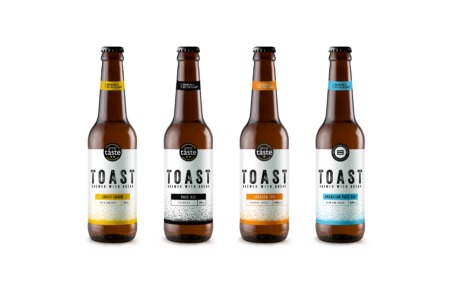
Where to buy Toast Ale
Toast Ale’s core range includes Purebread Pale Ale, Much Kneaded Craft Lager, Bloomin’ Lovely IPA plus Born and Bread APA. Flour Power is available from Abel & Cole. Other Toast Ales are stocked by Co-Op, Tesco, Waitrose and various independent shops, restaurants and bars.
Images provided by Friends of the Earth and Toast Ale.
Author: Robin Goldsmith of The Write Taste
Penrhos Gins – made with fruit grown on the farm
Provenance has been a buzz word for a while now, applying both to food and drink. There is something honest and appealing in knowing that the product you’re enjoying has been made with ingredients sourced locally. Penrhos Spirits is one producer that’s applying this principle to its recently launched gins.
Herefordshire produce
The county of Herefordshire is a true haven for agriculture. Apple and pear orchards, hop fields and vineyards provide the basis of many top quality soft and alcoholic drinks. For Penrhos, the essence of the Herefordshire Marches forms the core of their products, as co-founder Richard Williams explains. “We grow our own fruit on the farm and use this in our gin. For example, the blueberries in our London Dry help take away some of the sharpness, rounding off the mouthfeel and adding smoothness. The gins we make reflect our orchards because of the botanicals we use. These include blueberries, cherry blossom, honey from our apiary, rhubarb, apples and elderflower.”
Origins of the distillery
Penrhos’ story began in spring 2017 when Richard and his friend Charlie Turner, both fruit farmers, conceived the idea of creating a distillery. They had already been working together for a few years growing fruit, but were looking to diversify. At first, they considered making juices and pressés, but as they were both interested in gin, they decided to research this spirit and took a course in London. First, they converted an old cow shed into a distillery. Then during summer later that year, they began experimenting on a small 1 litre still.
Using farm-grown fruit
They always wanted to utilise as much of the produce on their farm as possible, a distinguishing story and feature of their gins. So they used cherry blossom from the cherry trees in spring to infuse their spirit, along with other farm botanicals including rose petals and blueberries. “We are fruit farmers and there are not many distillers making fruit-inspired gins with their own fruit“, notes Richard. Initially making a London Dry Gin, they then experimented with a rhubarb gin, blending their London Dry with rhubarb juice, using a variety called Red Raspberry. With pink gins being so on-trend, they have recently added 3000 plants of this variety on to the farm.
Local inspiration
Water comes from a bore hole on their 450-acre fruit, arable, grass and poultry farm and the bottle logo shows a chequered landscape with blueberries at the top. Richard describes this as “a nod to the local landscape.” Also, although currently buying in grain spirit, they have plans to eventually make their own.
Launch of the distillery
In autumn 2017, they applied for a grant from Herefordshire Council, which was awarded in April the following year. Once they’d received the necessary licenses and other accreditation, they ordered a still from Ryebeck in May 2018. Since they were new to distilling, they worked on recipes with an independent distiller in autumn 2018 who, as Richard comments, “pointed them in the right direction.” The distillery was then kitted out in September, before full production began and the London Dry and Rhubarb Gins were launched in December.
Contact with Ryebeck
They had already spoken to several equipment suppliers but were immediately impressed with Ryebeck’s attitude and expertise. Richard is in no doubt that his experience with Ryebeck has been very positive. “Tim knows his stuff well“, referring to Managing Director Tim Prime. “He offered us a realistic route to get going that fitted our requirements and recommended a quality 2nd-hand still from Germany. We had already done much of the research regarding the kit we wanted and visited several other distillers. We sent Tim a list of our requirements and together with Bob Wessels, a Dutch colleague of his, they sourced what we needed. Bob then came to us last September to set up and commission the still.”
Ryebeck’s involvement throughout the journey
Richard is keen to point out that Ryebeck’s involvement did not start and finish with installation of the still. “Both Bob and Tim have offered us plenty of good advice going forward and we can always reach them by phone if we need to contact them. We first met Tim towards the end of 2017 when we already had our 1L still, but were looking to upscale commercially. We had a good conversation with him then and throughout our journey. He even visited recently to check on progress. Tim and Bob helped source all the equipment, including our bottling facility, as well as assisting with licence applications.”
The Carl still
They use a 150L Carl still, named Connie after Richard’s grandmother who used to work in the original cow shed that was converted to today’s distillery. “We can output 850 bottles per week if we were to do a batch run five days a week“, explains Richard. “At the moment, we usually distil about once a week, which is 170 bottles.” The advice from Ryebeck has proved invaluable in ensuring the best quality distillate. “Bob told us to run the process slowly, taking eight hours from start to finish per batch, which equates to 15L/hour. This method retains as much of the flavour of the botanicals as possible. With the type of still we have, there is much copper contact, leading to a smoother spirit. We also ensure the temperature is never too hot and the simple tap button screens with digital temperature gauge makes all this easy to achieve.”
The future
Richard and Charlie are now developing an apple and elderflower gin due for release probably in August this year. They have other plans for the future too and are in no doubt that Ryebeck will be their first port of call if they need new equipment. For anyone else thinking of setting up a distillery, Richard sums up why he would recommend Ryebeck. “You need to talk to somebody with expertise who can explain things simply and give advice. Ryebeck definitely provides this, they are easily contactable and have a good website too.”
Author – Robin Goldsmith
Made Mead in London
If you haven’t already succumbed to the buzz of this ancient drink, then surely now the time is right to get into mead! Known as nectar or ambrosia to the ancient Greeks, who believed it to be the drink of the gods and possessed of magical powers, it is the world’s oldest recorded alcoholic beverage.
Mead’s Discovery
Mead was probably discovered in Africa by accident many thousands of years BCE. Rainwater in beehives produced an attractive (and intoxicating!) sweet−tasting drink for unsuspecting hunter−gatherers. Several millennia later, it gave rise to the word ‘honeymoon’. This references the ancient Norse custom of giving newlyweds enough mead to last a month − their first moon of marriage. Eventually after Louis Pasteur’s discovery, cultured yeasts would be used instead of spontaneous fermentation. Now, buoyed by the success of Game of Thrones and Harry Potter plus the craft beer movement, mead is being given a truly modern lease of life by a new generation of craft brewers.
Gosnells modern approach
Gosnells of London, the capital’s only meadery, is one of the most innovative of these contemporary breweries. Their sights are firmly set on spreading the love of the bee, bringing a hip US vibe to south London. The company was founded in Peckham in 2014 by Tom Gosnell after a tour of America. He had become fascinated by the way that mead was being reinterpreted as a high value, highly crafted beverage with none of its historic, semi-monastic trappings.
Different Meads
Sub-styles of mead
- Braggot: malt and honey fermented together.
- Melomel: mead made with fruit, often berries.
- Cyser: apple juice and honey fermented together.
- Pyment: mead with grapes or grape juice.
- Metheglin: mead made with herbs or spices.
Their core product, London Mead, uses Spanish orange blossom honey to create a light style of sparkling mead. At only 5.5% ABV, it’s clean, fresh and thirst-quenching. In contrast, their Vintage Mead 2018 is made from 100% London honey sourced from hives in east London. This has 12% ABV, is sweeter, richer and more complex. They also make other limited edition styles such as dry-hopped, barrel-aged and various seasonal meads.
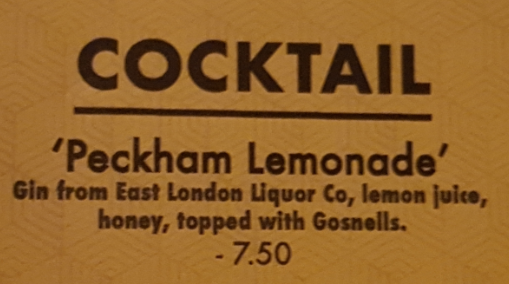
You don’t have to be Del Boy or Rodney to enjoy this cocktail. Cushty!
The Coal Rooms
“Craft beer is super-sexy andgets loads of attention, butbut there’s so much you cando with mead and the differentflavours you can get out of it!”,says Tom Gosnell.
Their latest project is a honey-focused bar, Gosnells Upstairs at Coal Rooms. The venue is located at the former Peckham Rye train station ticket office. Launched 8th March 2019, the new bar focuses on Gosnells’ meads, including a changing list of experimental brews. These range from pink hibiscus, salted, hopped, barrel-aged and gooseberry to non-alcoholic options. Honey-based cocktails, including frozen mead ‘Slushies’ add to the modern buzz and delicious food is available from the restaurant downstairs.
Mead of the Month
For their Mead of the Month, they work with different beekeepers to showcase one specific type of single-origin honey. Tom Gosnell explains further: “Depending on what the bees have been eating, you get many different flavours. Currently, we are working with a beekeeper in Biggin Hill and our current Mead of the Month shows distinct biscuity, malty and cereal notes. We make it at 8% ABV and bone dry, giving it a complex and savoury feel.“
Events and innovations
The new space will also be used for a variety of honey and bee-based activities. These include mead masterclasses, food-pairing suppers, cocktail evenings and bee celebrations with apiarists. Tours of the Gosnells Meadery will continue every Saturday at 1pm, leaving from the Coal Rooms which is 5 minutes’ walk away. Additionally, their new ‘Hive Subscription Service’ will provide happy recipients with a different bottle of mead each month over a 10-month period. Costing £200, buzzing fans will also get little pots of honey from which the mead was made.
Mead’s contemporary relevance
“This is an exciting moment for us“, says Tom, “and we have the chance to demonstrate our meads in the heart of Peckham alongside great British dishes. Why have a glass of 12-15% wine when you can gain even greater elegance and just as much flavour from our 5.5% Original Mead? It is great paired with vegetarian foods, fish, pork or lamb and it goes really with spicy food too. We are putting mead on the map nationally. We want to show the amazing range of flavours, textures and alcoholic strengths made possible by beautiful and ecologically significant bees. Our presence at the Coal Rooms allows us a more sophisticated way of showcasing all the meads we make and the really exciting differences you can get out of different types of honey.“
Opening Hours for Upstairs at Coal Rooms are 5pm-10pm Wednesdays and Thursdays; 4pm-10pm Fridays; 12pm-10pm Saturdays.
Author – Robin Goldsmith
Meet the distiller: Craig Law
Ryebeck’s latest service is to offer contract distilling using the experience and knowledge of Craig Law, creator of the award-winning Yorkshire Distilling Co.. Since leaving college at 17, Craig has spent his entire career in asbestos management. However, a taste for beer led to an interest in home-brewing and distilling spirits. So how did this journey start and what lit the fuse that fired Craig’s passion and eventual involvement with Ryebeck?
Beginning of the journey
“Like so many young people, I enjoyed a beer, but as I matured I became fed up with the big brands. Then about 11 years ago, I started home-brewing with the aim of making the best beer I could“, he explains with characteristic Yorkshire honesty. Drawing a parallel with two craft beers from his local pub, one made with horseradish and the other with cucumber, he wanted to emulate that approach, not restricting himself to the norm. This zest for pushing the boundaries and creativity led him into the world of spirits. “Brewing and distilling go hand in hand. I always appreciated rum, but was never a big spirits drinker until I received a gift around six years ago. It was a bottle of R.L. Seale’s 10-Year Old Rum. I grew up with the big supermarket brands of beer and rum, but this bottle opened my eyes and shaped what I do now. I fell in love with rum then and so started experimenting with distilling at home.”
The distillery
The next stage came four years ago when Craig decided to upscale his distillation hobby and make it into a business by hiring premises in a local council building which has sadly since been demolished. He spent time learning as much as he could through courses, personal experience of working with other distillers and “drinking plenty of rum“, he recalls. “As owner and distiller, I needed as much information and hands-on experience as possible. I had to be comfortable with what I could produce.” After a year of training, research and tasting, he applied for a distiller’s licence which took a further six months of paperwork. Trialling various recipes until he was satisfied, his first bottles were subsequently launched two years after installing the distillery.
“I’ve always been interested in cooking and entertaining with friends, which ties into my home brewing. The processes are different, but it’s just like creating a fine meal, putting together the components for an end product and seeing the enjoyment in others.”
From rum to vodka
Craig is justifiably proud of his achievements. He originally set out to make a high quality, flavourful dark rum with a story (the packaging is fun and alludes to pirates stealing sugar!) and certainly achieved his objective. Then, similar to his epiphany moment with RL Seale’s, he discovered high quality Siberian vodka. “Vodka was always very popular in supermarkets, but I never found them any good”, he recalls. “The Siberian version changed my mind!”
Spotting a gap in the market for vodkas of superior quality than those widely available in bars, pubs and supermarkets, he researched how the poorer ones were made. Learning how specialist yeasts that produced faster fermentation times with higher alcohol were commonly used, requiring much filtering of the resultant spirit to remove the harshness, he was determined to adopt a different approach. Therefore, he created the Limited Edition Yorkshire Vodka, a double-distilled, unfiltered, wheat and barley-based sipping vodka, at a premium price point of £30 RRP. With its smooth, subtle flavours and barely noticeable 40% ABV, it sold well in Majestic and, as Craig describes, “educated consumers that it’s possible to make a high quality vodka which doesn’t need to be filtered.” Additionally, following a challenge from local bars to make “a quality vodka without a premium price“, he created Brethren Vodka, sold on-trade for £10 and an RRP of £17. He entered it in the prestigious IWSC (International Wine & Spirit Competition) 2018 and won a Silver award, competing against much more established brands.
Philosophy
Craig applies a common set of principles to everything he makes: “It’s not just about the money – I never set out to become a millionaire! A craft brewery or distiller should always be about quality and the product should be unadulterated like RL Seale’s with no added colour or sugar. We need brands to push boundaries and not keep it too safe. The public now has moved away dramatically from cheapness and there is a massive appreciation for premium drinks.”
“If I was going to make something“, he continues, “I would have to be open and honest about it! Rum has such loose regulations, but rather than just adding sugar, I wanted to make the best rum I could from 100% molasses, so Brethren Black was born. All the colouring comes from the molasses and the oak ageing. I had to be satisfied with the end result – if I wouldn’t drink it, I wouldn’t sell it. With vodka, I was adamant about applying the same principles, to make the best I could with the fewest processes.”
Meeting Ryebeck
When Craig received notification from the council that he had to leave his premises, he contacted Ryebeck who agreed to purchase the distillery equipment. Managing Director, Tim Prime was so impressed with Craig’s three spirits that the idea of contract distilling was discussed and then soon became a reality. Craig already had some experience of this, but teaming up with Ryebeck represented an exciting new venture.
“I didn’t get to where I am today without making errors, so people can learn from my mistakes and head them off before they happen!”
Contract distilling
As a contract distiller for Ryebeck, Craig offers a variety of services suited to individual client’s needs. These comprise any aspect of the journey from recipe development to initial set-up, distillation method, blending, advice on avoiding pitfalls and packaging requirements. He is available for one-to-one tuition with distillation on-site, or telephone and email consultations if preferred.
Through his in-depth understanding of yeast strains, heads and tails cuts and other technical considerations, along with experience of HMRC regulations and managing paperwork, Craig can provide an indispensable service for new distilleries. His enthusiasm, passion, integrity and core principles continue undiminished and will be of great benefit to others. “I love the idea of changing people’s mindset from a £16-£18 bottle to a more expensive one or the challenge of producing good quality vodka like Brethren for a non-premium price. I couldn’t do this if didn’t enjoy it and wasn’t happy.“
Star Belgian beer brand Duvel unveils brand-new gift pack
If you’re struggling to find the perfect seasonal gift for a beer lover, then look no further! Duvel, the iconic Belgian brewery and winner of Gold in the ‘Strong Blonde / Golden Ale’ category at the Brussels Beer Challenge 2018, may have the answer for you. Duvel’s Devilish Duet Gift Pack contains a 330ml bottle of their Belgian Golden Ale, a 330ml bottle of their Tripel Hop ‘Citra’ and that famous Duvel-branded tulip glass. Set to gain more listings in the run-up to Xmas, the pack is currently available to purchase online from selected retailers (RRP £12.99).
Duvel’s origins
Jean-Leonard Moortgat, descendent of a long line of Belgian brewers and his wife Maria De Block founded the Duvel Moortgat brewery in 1871. Since then, Duvel has been family-owned and family-run with the fourth generation now at the helm. After the First World War and influenced by English ale styles, one of the founders’ sons procured a specific strain of yeast from a Scottish brewery and to this date, Duvel’s yeast is still cultured from the same strain. In order to commemorate the end of the war, a new beer was created. Initially called Victory Ale, the name was changed in 1923 in response to a local notable’s description of the highly aromatic beer as “a real devil (duvel)” and so the name stuck!
The unique Duvel glass
In the 1960s, the tulip-shaped glass was invented, the first ever to hold the entire contents of a 330ml bottle and specifically designed to offer a more complete experience of the beer. Its rounded shape accentuates flavours and aromas, while the way the glass narrows towards the top helps retain carbonation, preserving the beer’s head.
Golden Ale
Duvel’s standard golden ale is anything but a standard beer. The late great ‘Beer Hunter’, Michael Jackson, described it as a beer of “astonishing sophisticated character: beguilingly pale, flowery and soft-tasting”. It’s a strong pale ale in style (8.5% ABV) which has been brewed over 90 days using aromatic Bohemian Saaz and Slovenian Styrian Golding hops. Initial fermentation occurs at 20-26°C, then the beer is matured in storage tanks at -2°C, before being bottled with extra sugar and yeast to begin a two-week refermentation phase at a warmer temperature of 24°C. The beer is then moved to cold cellars, where it continues to mature and stabilise for a further six weeks with daily taste checks. This unique brewing process results in a floral, fruity, dry, subtly bitter, rich and refined beer, which shows notes of sweet and tart citrus, touches of butterscotch, nuts and spice plus hints of yeast and orange peel on the mid-to-end palate. The high CO2 content gives this beer a wonderful roundness in the mouth, accentuated by the tulip-shaped Duvel glass. It’s a perfect thirst quencher and an ideal apéritif!
Tripel Hop
Duvel Tripel Hop (9.5% ABV) is brewed using a third hop. A different variety was used each year between 2010 and 2015 in order to create a unique taste experience and an extra degree of alcohol. However, rather than adding this third hop into the standard boil, Duvel Tripel Hop uses dry hopping, where the extra hop cones are added during the final lagering stage post-fermentation to incorporate delicate aromatic oils otherwise lost in the boiling process, without imparting additional bitterness.
Six Tripel Hop beers later, in 2016, Duvel went in search of the ultimate Duvel Tripel Hop, by re-brewing all the previous Tripel Hop beers. More than 5,000 fans across Europe tasted and voted for Citra, the 2012 option, as clear favourite. Duvel Tripel Hop Citra not only won a Gold Medal at the Brussels Beer Challenge, it was also awarded the consumer trophy at the Zythos Beer Festival. Pouring a beautiful golden colour, the nose is highly aromatic with floral and herbal notes lifting the citrus and tropical fruit character plus a hint of caramel as the beer develops in the glass. On the palate, sweet orange, grapefruit and tropical fruit are balanced by a refreshing edge of bitterness plus a light touch of sweet caramel malt and a tinge of yeasty/toffee creaminess.
With these two beers and the iconic tulip glass, Duvel’s gift pack will make a devilishly delightful present for fans of la bière belge!
Braubeviale: a brief look back at some of this year’s highlights
Braubeviale is one of Europe’s most important trade fairs for the production, marketing and sales of soft and alcoholic beverages. Held in Nuremberg every three out of four years and replaced by Drinktec in Munich every fourth year, it brings together brewers, distillers, engineers, equipment manufacturers and suppliers plus many others involved in the drinks industry. From 13th to 15th November 2018, nearly 1100 exhibitors showed their products and services to an expected 38,000 trade visitors interested in the raw materials, technology, components, packaging and marketing of beer, wine, spirits, cider and soft drinks.
While beautifully engineered distillery and brewhouse installations, including stills, mash tuns, fermentation vessels and bottling lines were among the most striking exhibits, there were plenty of other highlights too.
Craft beer
One clear theme of this year’s fair was the importance of the craft beer market with a plethora of eye-catching signs, posters, stalls, talks and tastings dedicated to this global phenomenon. There was a good variety of beers from around the world to try and some of the most interesting were from Spain’s Cervesa del Montseny and Cerveses La Pirata plus a strong showing from Italy too.
Reduced alcohol beers
Low and no-alcohol beers represent a growing category which was among the various subjects covered by guided tastings in the dedicated Craft Drinks Area. According to the German Federal Statistical Office, sales of beer by breweries and beer storage establishments located in Germany are down by 2.5% year-on-year. In contrast, sales of alcohol-free beer are booming, says the German Brewers Association (DBB). Among many low and no-alcohol beers discussed and showcased at the guided tastings, perhaps the best was Hamburg’s superb top-fermented Kehrwieder Kreativbrauerei. Winner of a prestigious European Beer Star 2018 Gold Award announced at the fair, this is full of tropical fruit aromas and flavours, while the body is impressive for a beer of only 0.4% ABV.
Raw ingredients
Hops, barley, yeast and water are the building blocks of most beers and unsurprisingly were strongly represented at the trade fair.
Hops
Flying the UK flag for hops production, sales and distribution were hop grower Stocks Farm and hop merchant Charles Faram with an imposing display of British and international hop varieties.
Malt
Crisp Malting Group and Muntons were among the renowned maltsters showcasing their products at Braubeviale. Award-winning Govinda IPA, brewed by Cheshire Brewhouse using the heritage Chevallier malt supplied by Crisp, is a unique English amber-coloured IPA that recreates the original Burton recipe and style from the early 1800s. Hugely flavourful and complex with stone fruit and citrus notes plus a defined malty backbone, this is a really impressive beer.
Water
One of the talks at Speakers’ Corner was entitled ‘Water – the most important part of your beer’. Discussing the significance of water hardness levels and the effects on flavour of sodium, chloride and sulphate concentrations, the water profiles of different beer styles were compared. Through its innovative water-testing kits, Latvian-based Wateriga provides simple solutions for better brewing and the talk provided a useful insight into the relevance of the company’s products for craft brewers.
Beer Glasses
Glassware is an often under-appreciated part of the drinking experience. Using CIAS Innovation’s neuromarketing technology, Italian company VD Glass invited visitors to a sensory analysis test comparing the same beer served in two different glasses. One was a traditional tasting glass and the other was their new Crafty Glass, designed to optimise perception of a beer’s nuances. Hooked up to electrodes that measure eye tracking and brain activity (electroencephalography), participants had their readings recorded. Although not conclusive, as novelty and interest wane over time, this method certainly demonstrated that a glass’ shape can have a potential impact on how interesting or enjoyable a beer is perceived by individual drinkers.
Long-life closures
Syncor is an innovative German company manufacturing synthetic corks, screw caps and a new ‘NatureCork’ range, providing high-quality closures for still and sparkling wines, craft beers and spirits. These long-lasting seals offer viable alternatives to conventional corks, including using wood fibres instead of cork particles to prevent cork taint. Their ‘Wood-Crown Cork’ for wine or beer incorporates an insert made of toasted oak that offers the advantages of a standard screw-top with the benefits of top quality natural wood.
Author – Robin Goldsmith


